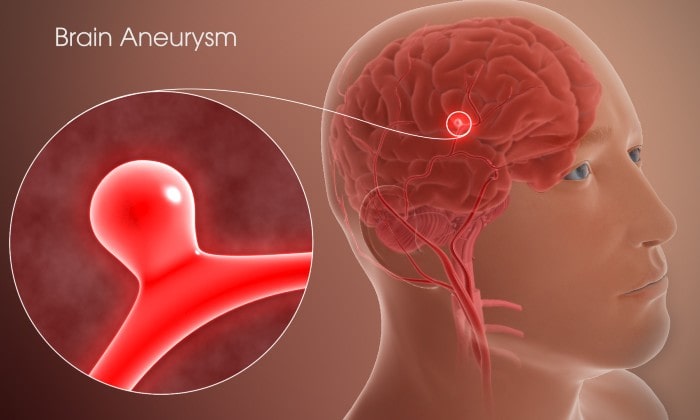Spine Surgery Risk Factors and Potential Complications
It is also crucial to realize that there are no surgeons with zero problems and all patients, whether they go through an operation or not, are exposed to risks every day. It is riskier to drive to work than many people think. By using the example in driving classify surgical problems in two categories--(1) speed bumps and (2) stop signs.
- Speed bumps are more frequent but they can be managed and over the long term will not have an impact on the outcome. From nausea that persists after anesthesia and the presence of a blood clot within the wound, which requires removal of bacterial infection, these are the most common problems that are easily treated.
- Stop warning signs are not good. These problems are rarer and could have long-term effects. They can include neurological impairment or stroke, a prolonged hospital stay, or even death.
The main point is patients need to be concerned about stop signs instead of speed bumps. I would encourage all surgeons to take a copy or bookmark this article to distribute to their patients.
Medical and Lifestyle Risks may increase the risk for complications while many patients who undergo surgery to treat back and neck problems have positive outcomes however, certain patients may be at a higher chance of experiencing complications during or following their surgery.
It is generally believed that the elements that can influence the development of a surgical-related complication are:
- Anemia (low red blood cells count)
- Cardiovascular disease (e.g. chronic obstructive lung disease COPD, etc.)
- Corticosteroid medication dependence (e.g., lupus treatment)
- Diabetes1
- Heart issues
- Kidney disease
- Metabolic bone disease
- Obesity
- Respiratory problems (e.g. shortness of breath asthma)
- Smoking
Apart from the risk factors discussed below, there are additional risk factors that are disclosed to your surgeon for spine surgery by your medical background as well as a physical exam. Being a risky patient doesn't necessarily mean that you're not suitable for surgery. Instead, your doctor will formulate his decision on treatment dependent on your complete medical history which also includes the risk factors that could cause complications.
Potential Spine Surgery Complications
The risk of complications can be present immediately before or during the moment of release or following spine surgery.
- Risks of anesthesia The majority of spinal surgeries are done under general anesthesia. This poses a low risk of stroke, heart attack, or brain injury. There is also the possibility of death.
- bleeding Bleeding A little bleeding can be normal and is expected so surgeons frequently employ different surgical methods, instruments, and devices to manage the bleeding and prevent it from happening. While it is not a common occurrence a blood vessel can be damaged.
- Clots in blood * people who undergo surgery on their lower body have an increased chance of developing blood clots in the veins that run through their legs. This is known as deep venous thrombosis (DVT). If the clot spreads into lung tissue, this is referred to as an embolism of the pulmonary tract (life-threatening complications).
- Dural tear The term " dural tear can also be referred to as an inadvertentdurotomy. It happens when a part of the layer that covers the spinal cord has been damaged, allowing cerebrospinal fluid let out. In most cases, a tear in the dural ligament is discovered during surgery and is quickly repaired. Dural tears are quite common, particularly in cases of revision where a second procedure is required to address the unexpected result.
- Fusion is not working: Nonunion and Pseudarthrosis refer to medical conditions that are used to describe the situation when the fusion of the spine fails to heal completely or correctly.
- An infection Infection could develop in the skin around the area of the incision or develop beneath the wound in the vicinity of the surgical location, but the likelihood of developing this is extremely low. The use of antibiotics and surgical procedures before surgery greatly reduces the chance of infection.
- Nerve and spinal cord injuries: The advent of advanced surgical tools that allow pre-operative procedure planning, microscopes, and intraoperative imaging can help decrease the possibility of damage to the neural system (eg bruise, cut,). The damage to the spinal cord can result in paralysis, pain sexual dysfunction, as well as other functional and sensory symptoms.
- Lung issues Lung problems The lung function following surgery could be affected due to anesthesia, medication, and inactivity. Medical personnel instructs patients to breathe deeply exercises to increase lung function and prevent the complications such as pneumonia.
- Persistent discomfort The following symptoms are common The reason is that you are likely to experience pain following surgery to your spine however, you should be able to report any debilitating pain or new signs with your doctor. Chronic pain can be an after-operation problem.
- Spinal implant issues: Spinal implants (or instruments) consist of interbody rods, plates, devices and screws, which are implanted to support the spine. The devices may break or shift, though it is very rare. If this happens then a second surgery on the spine could be required. Patients inquire concerning the rejection implant rejection. It usually means problems with fixation, or the implant not Fusing. Allergies to devices (eg metal, for instance) are extremely rare.
- Transient syndrome (adjacent segment disease): Adjacent segment disease could be a consequence that can result from spinal fusion. The biomechanics of the fusioned spinal segment (eg L2-L3) change the way that forces and strains are dispersed. This may cause additional stress on the bones (eg vertebrae) over and below the fusion point, which could lead to the development of micro-movement which is a form of instability that can lead to pain.












